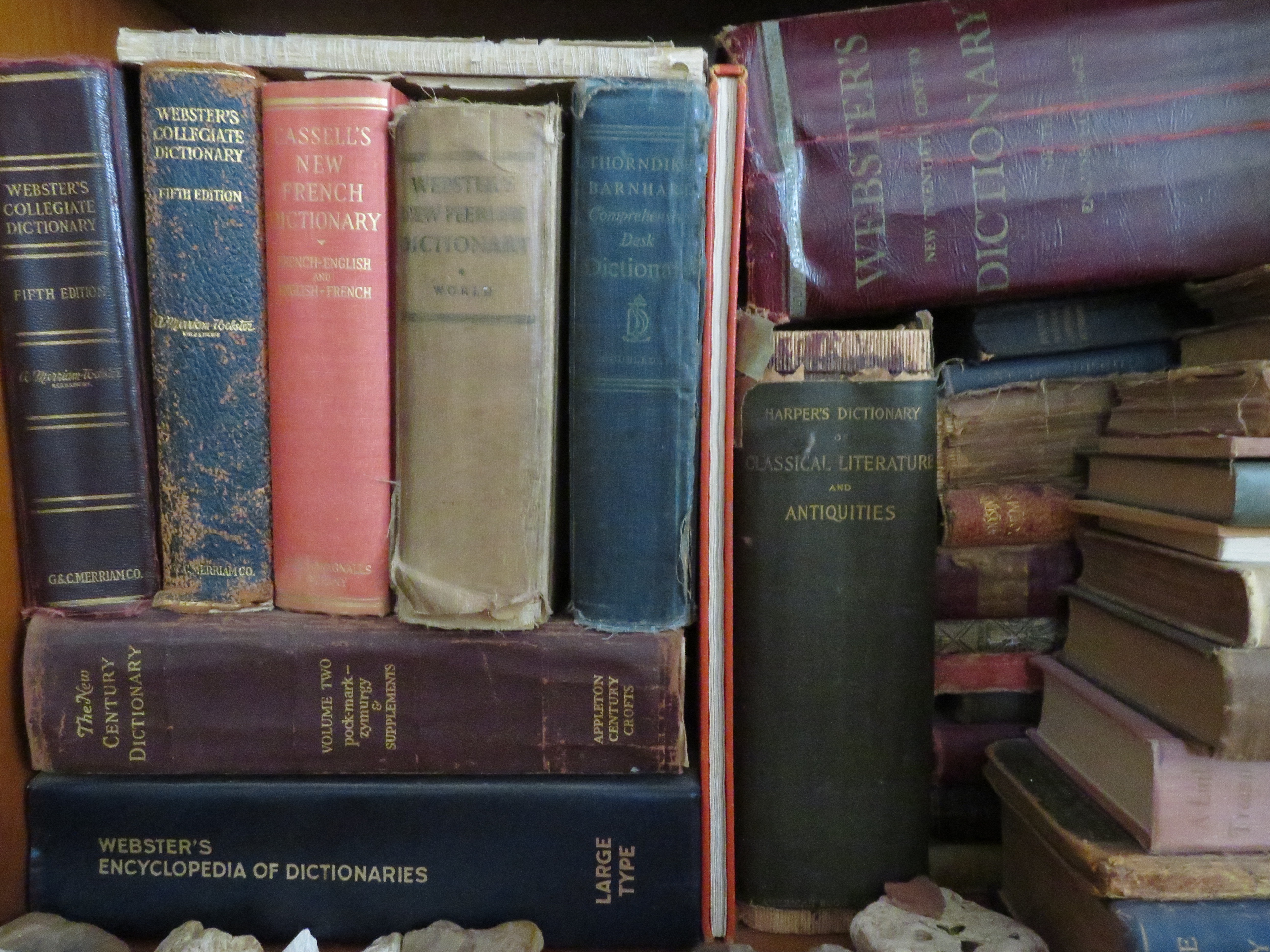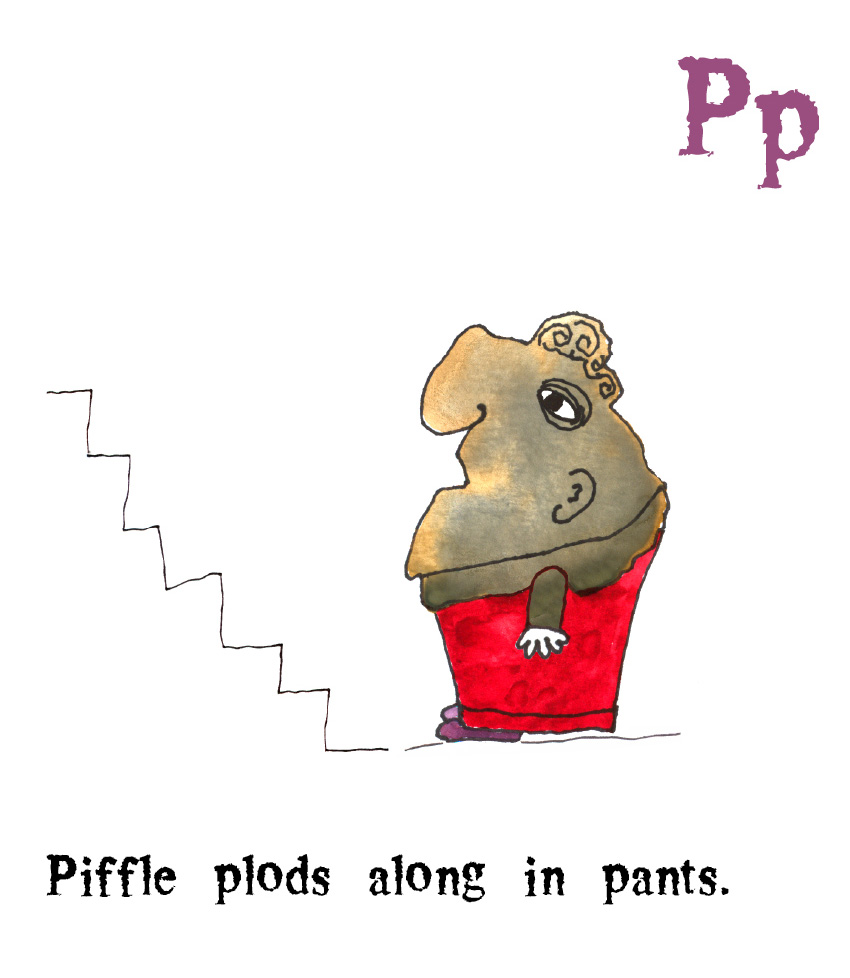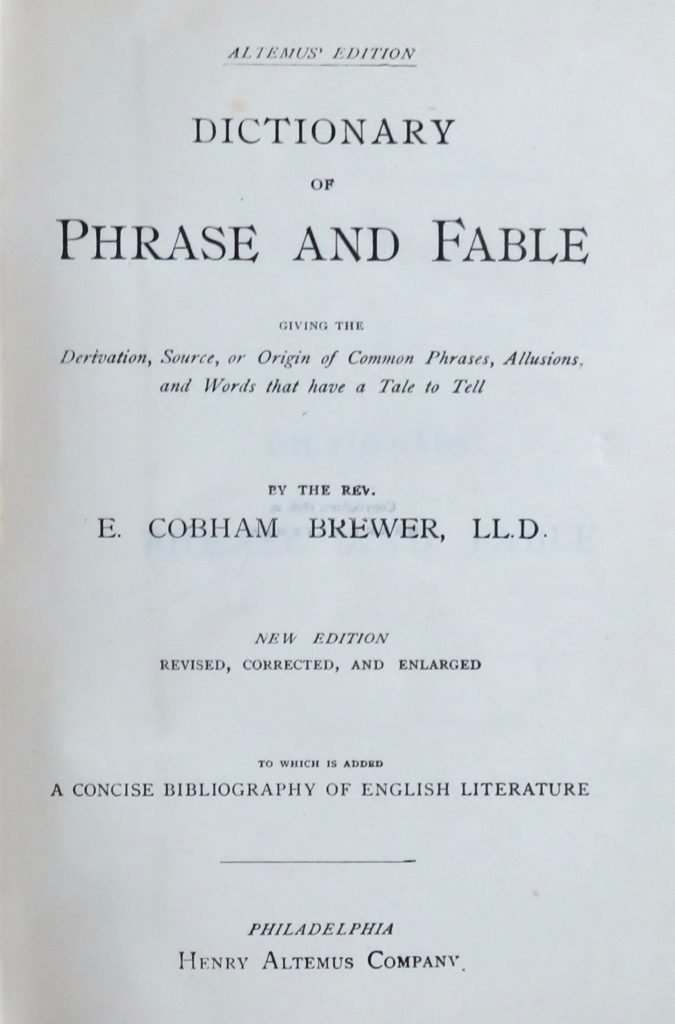I am a word lover. The other day, during a pickleball game, I remarked to my partner that my shot had been lackluster. He was clearly amused, as he repeated, “lackluster,†with a smile and a slight shake of the head. Not the sort of word you normally hear during a pickleball game. However, another guy who plays with our group often says, “Piffle!†when he muffs a shot. Also not your usual sporting term, but one for which I have a great deal of respect. As a noun, piffle means “trivial nonsense.†I used the word Piffle as the name of a character in my ABC book for children (below). Thus I am charmed by my friend’s use of it at pickleball.
According to Merriam-Webster, synonyms for this wonderful noun include “applesauce, balderdash, baloney (also boloney), beans, bilge, blah, blarney, blather, blatherskite, blither, bosh, bull, bunk, bunkum (or buncombe), claptrap, codswallop [British], crapola, crock, drivel, drool, fiddle, fiddle-faddle, fiddlesticks, flannel [British], flapdoodle, folderol (also falderal), folly, foolishness, fudge, garbage, guff, hogwash, hokeypokey, hokum, hoodoo, hooey, horsefeathers, humbug, humbuggery, jazz, malarkey (also malarky), moonshine, muck, nerts, nonsense, nuts, poppycock, punk, rot, rubbish, senselessness, silliness, slush, stupidity, taradiddle (or tarradiddle), tommyrot, tosh, trash, trumpery, twaddle.†Piffle can be used as a verb, as well, but I’ll spare you the list of those synonyms.
Whose vocabulary could not be improved by the use of these wonderful words? And of course, there are so many more where these came from. And yet, we slog along, using very few of the 40,000 words the average English speaker recognizes and can define. Instead, we generally use only about half of those in speech and writing. I myself am guilty of over-using the word “awesome,†as well as many other common words.
The New York Times Mini Crossword for September 19 gives as a clue, “Adjective that’s been called ‘possibly the worst word in the English dictionary.’†The word I eagerly attempted to divine turns out to be “moist.†This judgment seems harsh. Why is this innocuous word deemed “the worst?â€
On the other hand, I can think of many words I would judge to be among the best. Palaver is one. Pandowdy. Kerfuffle. Flummoxed. Befuddled. Bumble. Shivoo. Allwither. Rapscallion. Scallawag. Scofflaw. Hooligan. Penultimate and Antepenultimate. Whiffle. Diphthong. Knackered. Bandersnatch.
I adore, as well, imaginative phrases, most of those being British. In the online painting class I took this summer, I was delighted to hear the British teacher refer to one of her own paintings as “a bit of a dog’s breakfast.†!! I find myself repeating the phrase often, but alas, out of context. Then there’s “Bob’s your uncle.†“I’m chuffed to bits!†“We just need to crack on.†And “Just stop whinging and get on with it!†I also love the phrase “More anon,†used by a retired English professor I know.
I feel we are all missing out by not using or even inventing more words. Shakespeare is said to have invented 1700 words and Lewis Carroll conjured up 24 absolutely frabjous ones, many of those portmanteaus. Language is evolving every day, with words being given new meaning or actually being dreamed up. Speaking is a pastime in which we all engage, so why not jazz it up a bit?
“Words are, of course, the most powerful drug used by mankind.†– Rudyard Kipling
“Don’t gobblefunk around with words.†― Roald Dahl, The BFG
If you’re looking for my cards or art, you’ll find all of that on my website. And if you enjoy these letters, feel free to forward this one to anyone you think might like it. Finally, you’ll find past letters and poems on my blog.
Thanks for listening,
Kay
P.S. MerryThoughts is the name of my first book, out of print at the moment. The word is a British one, referring both to a wishbone and to the ritual of breaking the wishbone with the intention of either having a wish granted or being the one who marries first, thus the “merry thoughts.”



